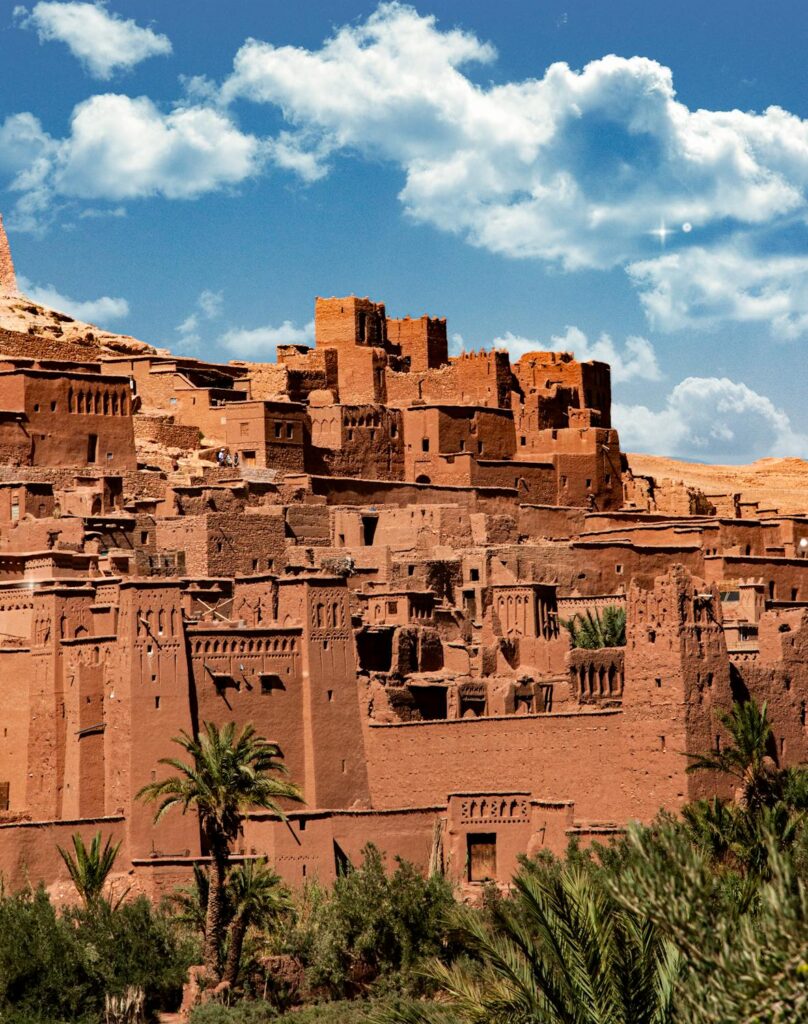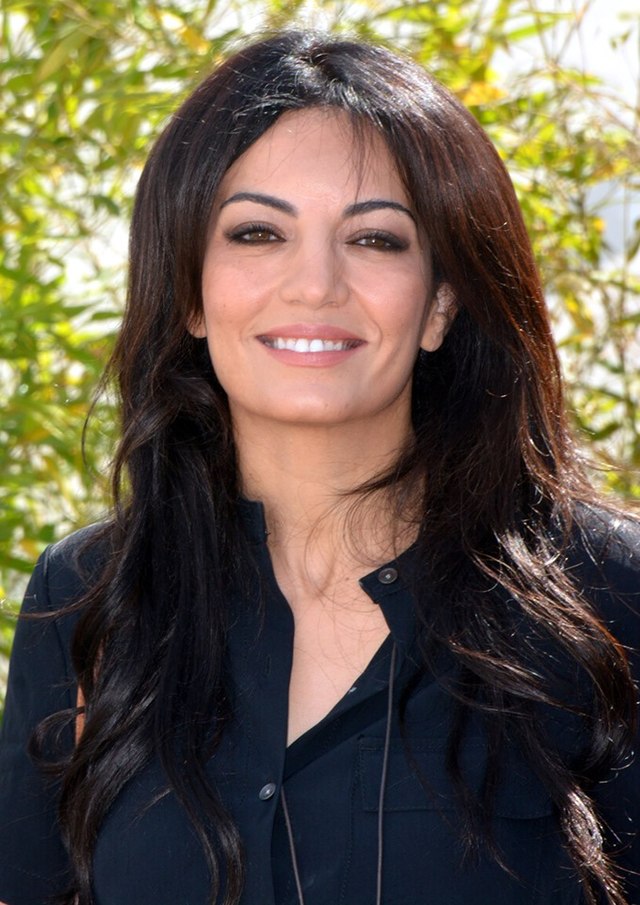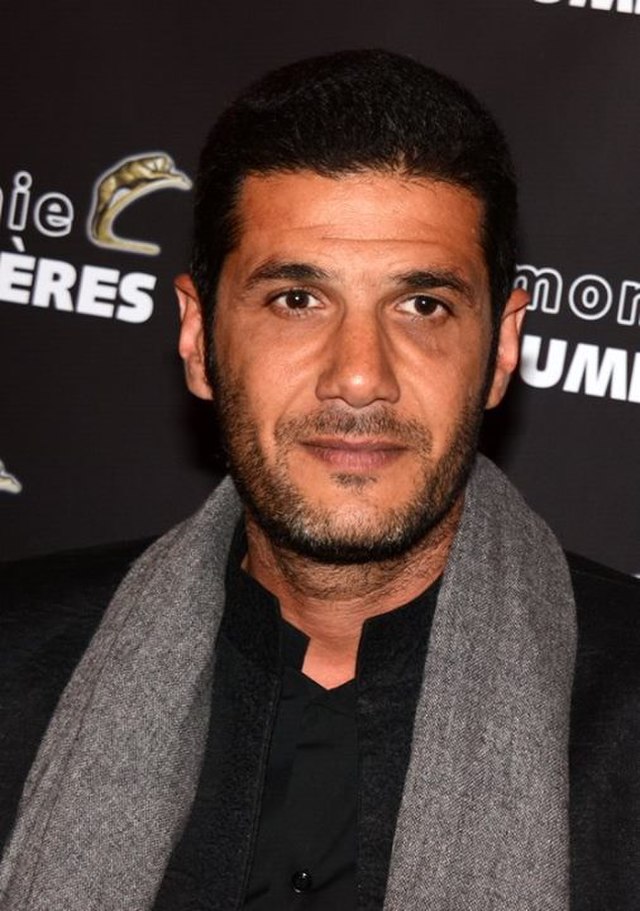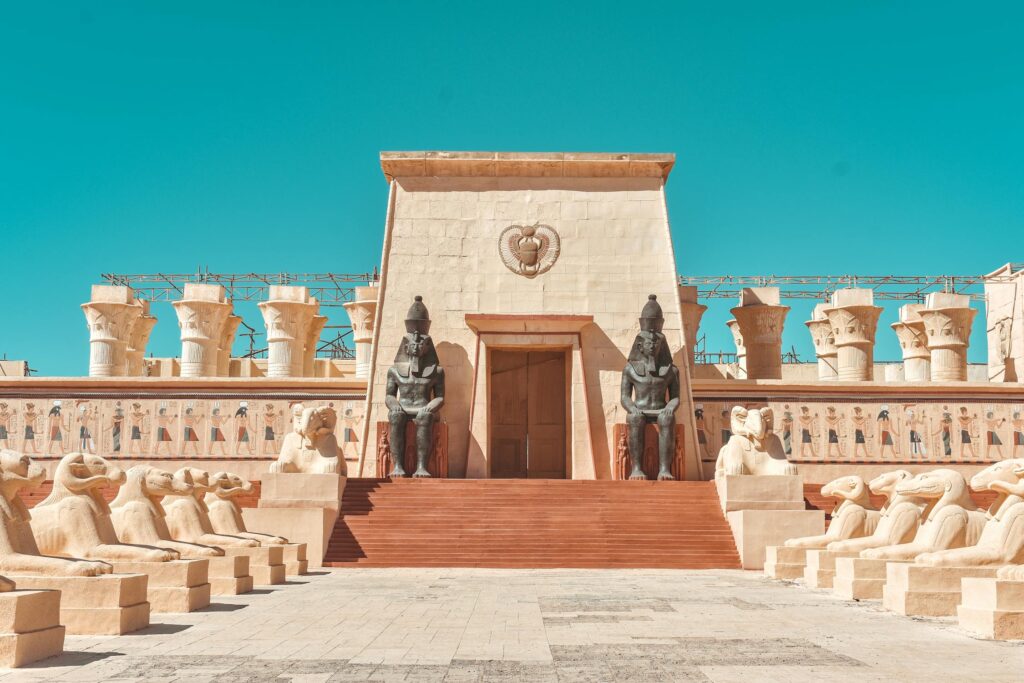The Moroccan Film Industry: A Cinematic Crossroads

By Mehdi El Merini / Arab America Contributing Writer
Morocco has become a major hub for the film industry, balancing its local cinematic identity with an increasing role as an international shooting destination. Known for its picturesque landscapes, bustling medinas, and cinematic history, Morocco offers filmmakers both a diverse cultural backdrop and experienced film crews. The nation’s film industry has grown significantly in recent decades, producing films that explore Moroccan stories while also hosting some of Hollywood’s most iconic productions.
The Rise of Moroccan Cinema
The Moroccan film industry took shape after the country’s independence from France in 1956, reflecting both post-colonial themes and the evolution of Moroccan society. Early films explored themes of identity, tradition, and modernity, with directors such as Mohamed Tazi and Souheil Ben Barka paving the way for Moroccan cinema. As the industry matured, filmmakers like Nabil Ayouch and Faouzi Bensaïdi began to tackle more controversial social issues, including immigration, poverty, and gender inequality.
Nabil Ayouch’s Much Loved (2015) is a prime example of Moroccan cinema’s willingness to challenge societal taboos. The film, which tells the story of sex workers in Marrakech, was banned in Morocco but received international acclaim. Faouzi Bensaïdi’s Death for Sale (2011) offers another perspective, diving into the underbelly of urban life and the struggles of Moroccan youth. These films reflect a cinematic movement that seeks not only to entertain but also to provoke thought and discussion on social realities.


Iconic Moroccan Films
One of the most celebrated Moroccan films is Ali Zaoua: Prince of the Streets (2000), directed by Nabil Ayouch. It tells the heart-wrenching story of a group of homeless boys in Morocco’s biggest city of Casablanca, blending realism with poetic storytelling. The film captured international attention, receiving awards at film festivals and establishing Morocco’s reputation for socially conscious cinema.
Another notable film is Les Chevaux de Dieu (Horses of God) (2012), also directed by Ayouch. This film tackles the sensitive issue of extremism by following the lives of boys from a slum in Casablanca who are recruited into terrorism. It stands as a profound exploration of how socio-economic factors contribute to radicalization.
Moroccan film makers have also directed a number of controversial movies, touching upon topics such as prostitution and sexuality, which are typically taboo subjects within Moroccan society. Examples of these films are the previously mentioned “Much Loved”, by Nabil Ayouch, and “The Blue Caftan”, by Maryam Touzani.
Morocco as a Hollywood Playground
While local filmmakers have put Morocco on the cinematic map, the country is also a favorite destination for international productions. Morocco’s landscapes—ranging from the deserts of the Sahara to the winding streets of ancient cities—serve as a natural set for films requiring an exotic or historical setting.
Among the most famous international productions is Ridley Scott’s Gladiator (2000), which was partly filmed in Ouarzazate, a desert city often referred to as the “Hollywood of Africa.” Ouarzazate, with its sprawling film studios and the historic Aït Benhaddou kasbah, has also hosted other blockbusters like The Mummy (1999) and Kingdom of Heaven (2005).
Game of Thrones and the Moroccan Backdrop
One of the most high-profile productions to film in Morocco is HBO’s Game of Thrones. Key scenes for the third season were shot in Essaouira, a coastal town with distinctive white walls and narrow alleys. In the series, Essaouira became the city of Astapor, the slave-trading hub where Daenerys Targaryen acquires her army of Unsullied soldiers. The bustling medina of Essaouira provided the perfect backdrop for the show’s fantasy world, enhancing its authenticity.
Ouarzazate also makes an appearance in Game of Thrones as the location for some of the scenes beyond the Narrow Sea. The use of Moroccan locations highlights the country’s ability to stand in for fantastical or ancient worlds.

Other Major Productions
Beyond Game of Thrones, Morocco has been featured in films like The Bourne Ultimatum (2007), which includes thrilling chase scenes through the streets of Tangier. Martin Scorsese’s The Last Temptation of Christ (1988) was also filmed in Morocco, as was Oliver Stone’s Alexander (2004). More recently, scenes from Mission: Impossible – Rogue Nation (2015) were shot in Casablanca, showcasing the city’s bustling streets and modern aesthetic.
Morocco’s unique blend of historical sites and contemporary urban and natural landscapes makes it an ideal filming location. Its proximity to Europe, coupled with government incentives and skilled film crews, ensures that the country remains a competitive destination for international productions.
A Bright Future for Moroccan Cinema
As Morocco continues to welcome international filmmakers, the local industry is also expanding. The Marrakech International Film Festival, founded in 2001, plays a vital role in promoting Moroccan cinema and attracting global talent. This annual event brings filmmakers, critics, and moviegoers together, fostering a spirit of collaboration and cultural exchange.
Meanwhile, Moroccan directors are gaining more recognition on the global stage. Maryam Touzani’s Adam (2019), a poignant film about two women in Casablanca, premiered at the Cannes Film Festival and was Morocco’s entry for the Best International Feature Film at the Oscars. This success signals a growing international appreciation for Moroccan storytelling.
Morocco’s film industry stands at a fascinating intersection between local creativity and global appeal. With films that explore the nuances of Moroccan society and international productions that take advantage of the country’s breathtaking locations, Morocco has become both a storyteller and a stage. As Moroccan filmmakers continue to push boundaries and global studios seek out its cinematic landscapes, the future of Morocco’s film industry looks brighter than ever.
Check out our blog here!








